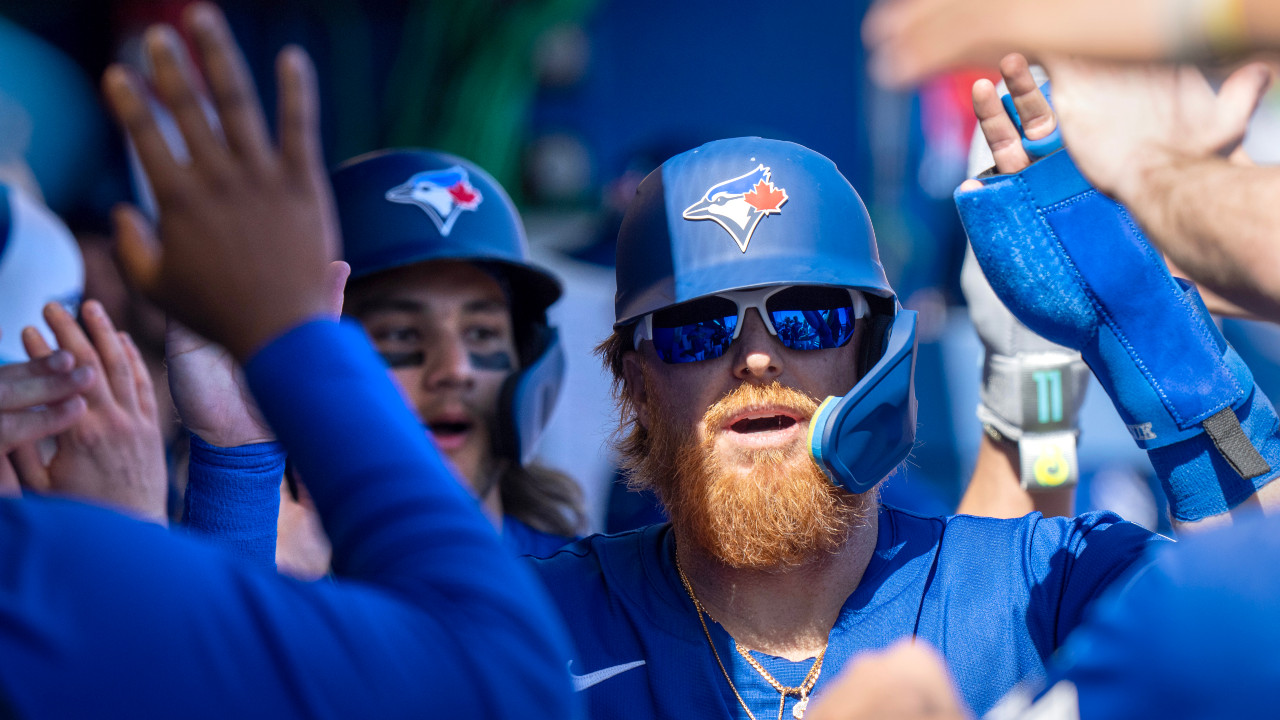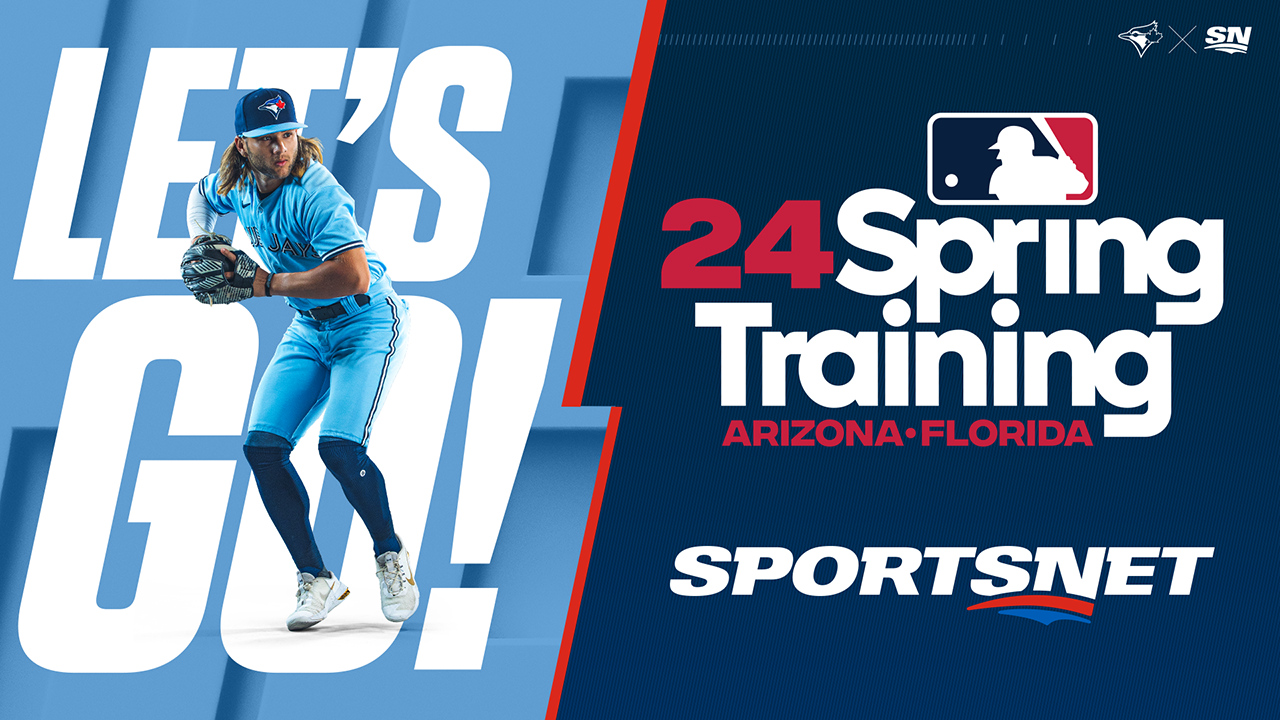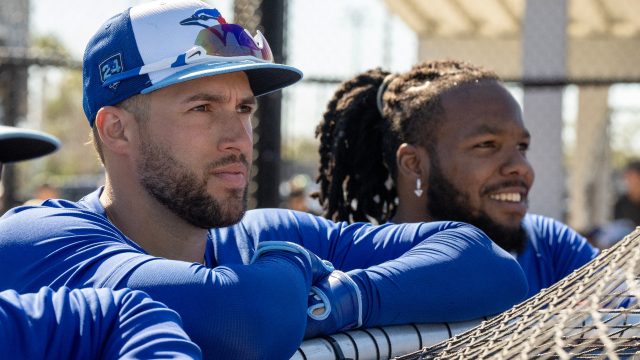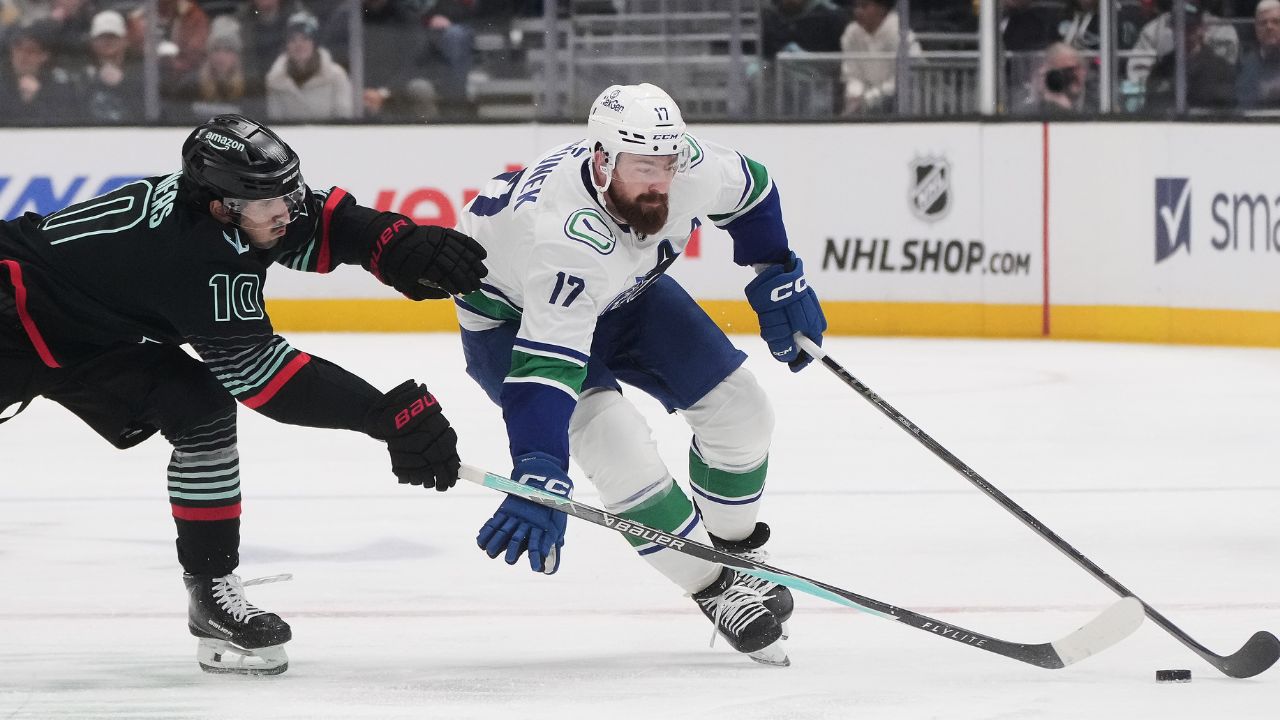
DUNEDIN, Fla. – In broad terms, the Toronto Blue Jays’ investigation into their offensive woes a season ago produced three prime takeaways. First, their messaging to players on fundamentals and strategy needed to become more united and consistent. Second, they needed to further customize their daily attack plans for opposition pitchers. And third, they wanted “a voice that really held some weight,” in the words of John Schneider, to lead the charge.
A search by the manager and GM Ross Atkins ensued for someone to bring all those elements together. They spoke to some external candidates. Time and again, however, they kept coming back to the one person they already had in-house, Don Mattingly, even though the bench coach had even suggested external candidates for the job.
“He was the perfect fit,” said Schneider. “With the group that we have player-wise, you want someone who’s been in the fire, can understand what players are saying and the fact that he had been around the guys for a year really separated him from anyone else we were talking to. … It just came down to whether he wanted to tackle that along with everything else he was doing. But when you’re trying to pinpoint a guy, there’s no one better.”
Mattingly did want the role, “it kind of organically happened,” he said, and in November, the Blue Jays named him offensive co-ordinator, alongside his bench coach duties. In the months since, he, hitting coach Guillermo Martinez and assistants Hunter Mense and Matt Hague spent countless hours ensuring they understood their hitters’ strengths, studying the parts of the zone where they do the most damage, and isolating specific pitches they should be hunting.
Applying that information is the key building block in developing “an individual team approach, where each guy has a responsibility to be a tough out,” said Mattingly, underpinned by a plan to accomplish precisely that.
The first of several dry runs came Saturday, when the Blue Jays opened their Grapefruit League schedule with a 14-13 loss to the Philadelphia Phillies. Daulton Varsho had three hits, including a double, and three RBIs, while Bo Bichette and Isiah Kiner-Falefa added two hits apiece.
If the Blue Jays are to be a better team than they were a year ago, when at 89-73 they claimed the third and final wild-card spot, improving an offence that was eighth in runs scored (746) and homers (188) among American League clubs will be key.
There were certainly some curious incongruities in their offensive performance.
They ranked fifth in batting average (.256) and fourth in on-base percentage (.329) with the third-fewest strikeouts (1,303) and fourth-most walks (550), but they failed to fully leverage their baserunners and contact by finishing eighth in slugging (.417) and sixth in average with runners in scoring position (.260).
All season long it didn’t make sense, which is perhaps why Mattingly said, “it doesn’t matter what happened last year, honestly. When I get to do this role, it’s about uniting it and making sure it’s consistent. We’re having conversations with our players. They have a big voice, they have to let you know what they’re hunting and what they’re trying to do so you can actually help them plan for what they want to do that night.”
To that end, Mattingly’s experience and knowledge will be essential.
A year ago, Martinez handled fundamentals and Dave Hudgens, reassigned to the minor-league side, took care of strategy. Wanting to respect their roles and not muddy focal points, Mattingly, for the most part, stayed in his lane.
But he’ll be driving conversations now, something Justin Turner is excited about.
Mattingly was the manager during Turner’s first two seasons with the Los Angeles Dodgers and though he wasn’t the hitting coach, the veteran designated hitter remembers having several conversations about hitting that resonated.
“He gets it. He’s done it. He’s played it. He knows about game-planning and approach and adjustments. So it’s easy to relate, and it’s easy to communicate,” said Turner. “Also it helps that he’s Don Mattingly with that instant respect that he has. And it makes those conversations come a little bit easier for him.”
Another factor, Turner believes, is the way Mattingly takes the time to understand each player’s thought process. Communicating can be complicated by the way different hitters understand different cues. Though everyone is trying to get to the same place, the way individuals hear and process the same information can vary widely.
“It’s crazy how in this game, three, four or five people can be saying the same thing, but saying it in different ways,” said Turner. “And depending on how the relationship is between hitter and communicator, it just lands from some guys and it doesn’t land from others. Donnie being Donnie, with his experience, when he says something to guys, for the most part, I think they’re going to be like, OK, that makes sense.”
Mattingly doesn’t take that for granted.
He knows how complicated it can be for players to deal with the fire-hose stream of information available over the course of a season, especially during periods when tips can flow from loved ones, from hitting coaches back in the day, from friends across the game.
That’s when the relationship with the hitting coach matters most.
“We just want to keep more of a simplistic view of how we’re going about our business, making sure we’re thinking right, our approach is good in how we’re going after pitchers and attacking them,” said Mattingly. “And that can’t really be one way.”
Ahead of the club’s first full-squad workout earlier in the week, Mattingly addressed the hitters during a kick-off meeting, and Bo Bichette liked both the way “he had a little fire” during the gathering, as well as the underlying message.
“Overall he just wants us to compete better, give away less at-bats, have more of a plan every single day,” said Bichette. “At the same time, understanding that there’s going to be at-bats given away and that there are going to be days where you don’t bring it as well and you have to show up to the field every day, but setting that expectation for us as a team to just be tough guys to pitch to.”
If the Blue Jays do that consistently enough, that should lead to more production at the plate, wearing down pitchers to the point that the damage comes.
And on the days it doesn’t, the goal is for there to be a toll on the opposing pitchers from nine innings of tenacious, competitive at-bats.
“What do you want to do with this guy? What are you trying to do? How are you trying to get him there? And then sticking with that,” Mattingly said of the approach he wants to see in the batter’s box. “Certain guys out there, you’re not going to cover the whole zone, every area of the plate or every pitch. It’s really hard to do. So we’re going to try to minimize where we’re trying to handle. We’re going to try to hopefully cover the areas of (a hitter’s) strengths, try to get the ball in those areas and go to work.”







